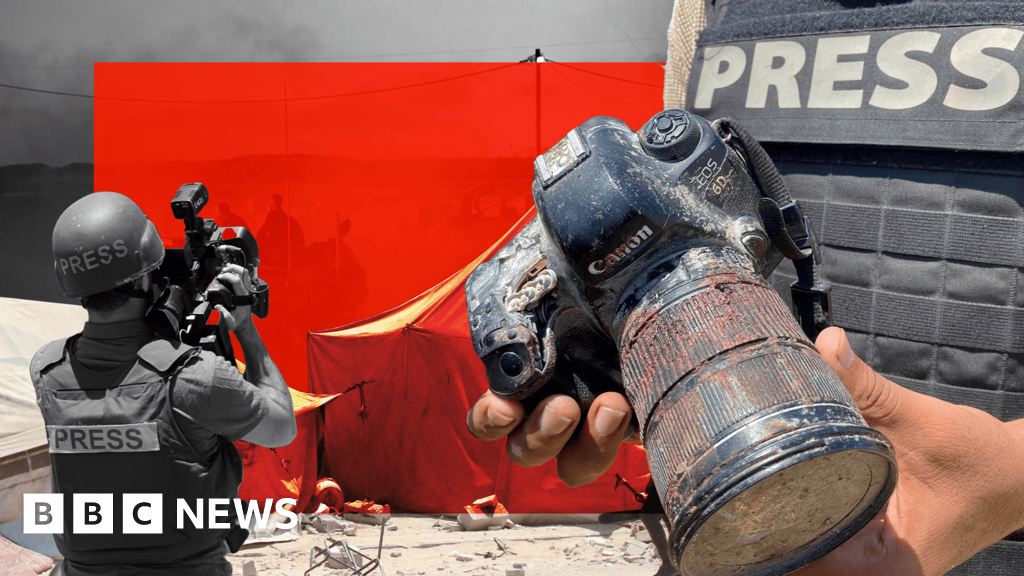I never imagined that one day I would be living and working in a tent, deprived of the most basic human necessities - even water and a bathroom. It's more like a greenhouse in the summer and a refrigerator in the winter, journalist Abdullah Miqdad told the BBC. After 22 months of war in Gaza, most journalists find themselves working in tents around hospitals in order to access the electricity and reliable internet connection they need to do their jobs.
Power has been cut off across Gaza, so hospitals, whose generators are still functioning, provide the electricity to charge phones and equipment, and offer high points with better mobile reception. But working at hospitals has not afforded them safety, with Israeli strikes on hospitals and their compounds killing a number of journalists during the conflict.
On Monday, five journalists were among at least 20 people killed in a double Israeli strike on Nasser hospital in the southern city of Khan Younis. International news outlets, including the BBC, rely on local reporters within Gaza, as Israel does not allow them to send journalists into the territory except on rare occasions when they are embedded with Israeli troops.
Ghada Al-Kurd says two years of covering news about death and hunger has changed her. During this war, we have lost the ability to express our emotions, Ghada told the BBC. We are in a constant state of shock. Maybe we will regain this ability after the war ends.
Until that day comes, Ghada holds back her fear for her two daughters and her grief for her brother and his family, whose bodies she believes are still buried under rubble following an Israeli strike in northern Gaza early in the war. The journalists in Gaza are suffering the same extreme hunger as those they are covering, with some stating that a cup of coffee mixed with ground chickpeas might be all they can consume during an entire workday.
As the conflict endures, journalists continue to report at great personal risk, documenting the unfolding humanitarian crisis in Gaza.
Power has been cut off across Gaza, so hospitals, whose generators are still functioning, provide the electricity to charge phones and equipment, and offer high points with better mobile reception. But working at hospitals has not afforded them safety, with Israeli strikes on hospitals and their compounds killing a number of journalists during the conflict.
On Monday, five journalists were among at least 20 people killed in a double Israeli strike on Nasser hospital in the southern city of Khan Younis. International news outlets, including the BBC, rely on local reporters within Gaza, as Israel does not allow them to send journalists into the territory except on rare occasions when they are embedded with Israeli troops.
Ghada Al-Kurd says two years of covering news about death and hunger has changed her. During this war, we have lost the ability to express our emotions, Ghada told the BBC. We are in a constant state of shock. Maybe we will regain this ability after the war ends.
Until that day comes, Ghada holds back her fear for her two daughters and her grief for her brother and his family, whose bodies she believes are still buried under rubble following an Israeli strike in northern Gaza early in the war. The journalists in Gaza are suffering the same extreme hunger as those they are covering, with some stating that a cup of coffee mixed with ground chickpeas might be all they can consume during an entire workday.
As the conflict endures, journalists continue to report at great personal risk, documenting the unfolding humanitarian crisis in Gaza.


















